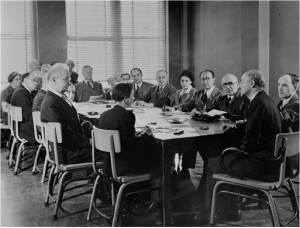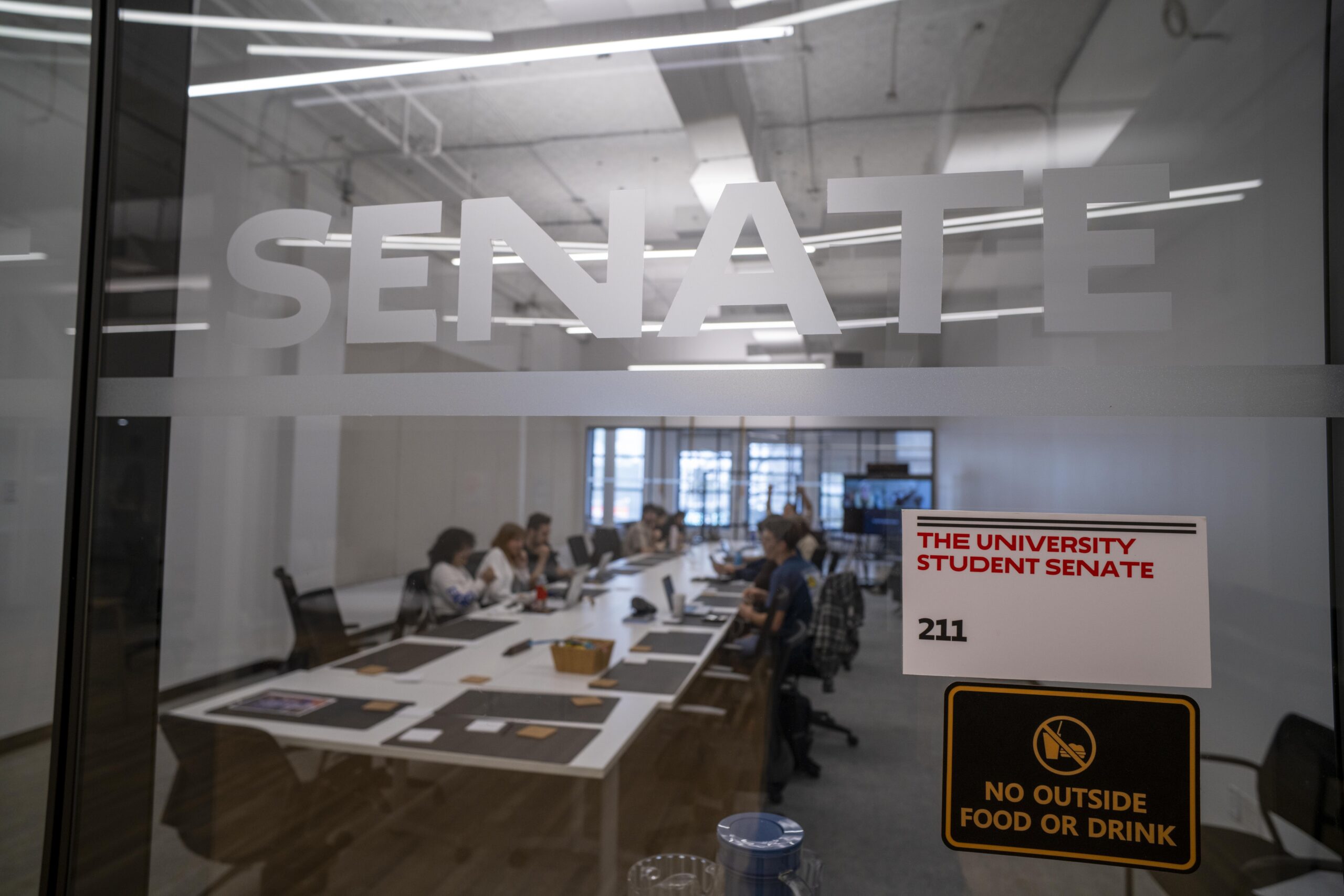
Publicity Office records, Courtesy of the New School Archives and
Special Collections.
Eighty years ago, 10 German professors scurried into the 66 W. 12th St. building for their first semester at The New School. Without introduction or ceremony, the scholars began their classes at the school’s newly founded “University in Exile” on October 2, 1933. An inaugural event was held the following week.
The scholars, all critics of the Nazi regime, had either left or lost their posts in German institutions and felt that remaining in the country after Adolf Hitler’s rise would jeopardize their safety.
During the first year, the scholars – later joined by several more – led a lecture and discussion course, as well as a seminar to advise graduate students on research.
Alvin Johnson, The New School’s inaugural director, felt the project would express the university’s “obligation to express by word and act its own faith in the value of academic liberty,” as quoted in a 1933 article from The Nation.
Between 1933 and 1935, the University in Exile sponsored 183 German and Italian refugees, who specialized in topics ranging from the hard sciences to the humanities. American philanthropists like Hiram Halle, The Rockefeller Foundation and the Emergency Committee in Aid of Displaced German Scholars funded the program.
The University in Exile remains one of The New School’s most celebrated academic endeavors, and has set a precedence for the values that our university strives to uphold. “The effort put into practice many ideals of the school’s founding,” said Julia Foulkes, who teaches Who New? A History of The New School, “that education mattered to solving the world’s problems, that a school was a place of action not just contemplation, that freedom of expression was a fundamental right and a necessary foundation for intellectual work.”
In 1934, the division’s name changed to the Graduate Faculty of Political and Social Science. In 2005, it was renamed the New School for Social Research – the New School’s original name – which still exists today.
Information for this article was gathered using the New School Publicity Office records, Courtesy of the New School Archives and Special Collections.







Leave a Reply